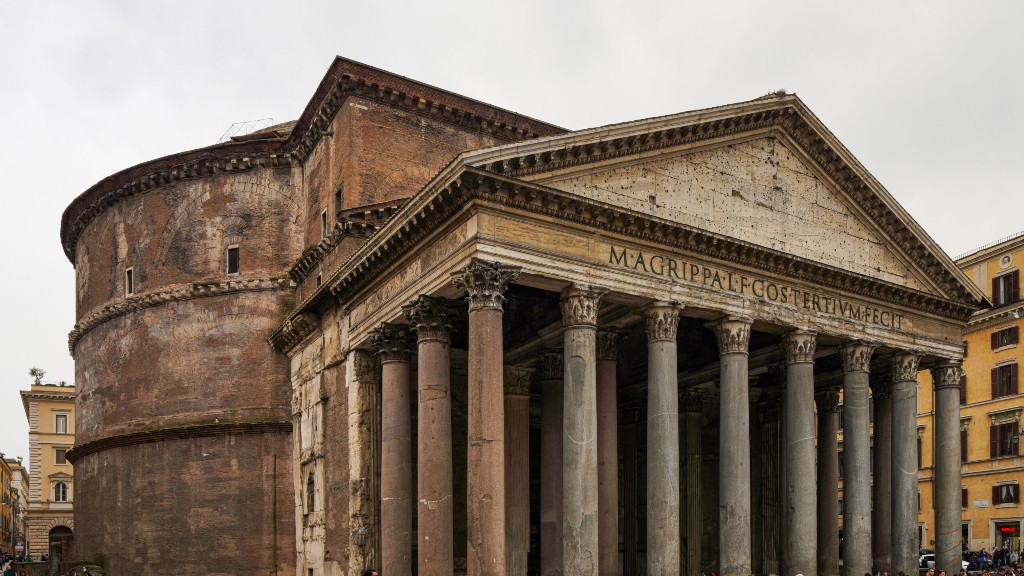In ancient Rome, citizenship was primarily given to those persons who belonged to the Roman political-cultural sphere. This was taken to include those living in the Roman provinces, though the rubric ‘citizen’ specifically relating to legal rights from the Republic (509 -27BC ) onward. Though statuses of citizenship may have varied for different individuals and different classes, it was largely a matter of being either a Roman citizen or a foreigner under Roman law.
In the Late Republic period when the citizenship was extended to all freemen who had been born in Italy, by the time of Emperor Caracalla, citizenship had been extended to all free subjects of the empire, making the citizenry all-inclusive. This form of citizenship, with the breadth of it’s definition which included all free persons of the empire, was known as the ‘Constitutio Antoniniana’. As a result, it is believed that there were over 4 million citizens in Rome at this time.
Citizenship in ancient Rome was highly definitive by the nature of its legal and political environment. Individuals, who were not part of a specified group, could not claim any rights of citizenship. As such, even though citizenship had been extended beyond members of the Senate and magisterial class, the rights and privileges were disparate between the members of a single class.
It was the obligation of a Roman citizen to protect the borders of Rome and the Roman Empire, with the expectation of action from them not only within the borders but also abroad. This added responsibility also included the citizens’ efficient functioning of the society in its entirety. The collective shared responsibility was seen as an obligation for all Roman citizens to obey and enact the law to the same degree.
Also, the citizens of Rome were expected to pay certain taxes, though it was the aristocratic class who paid the largest portion of the taxes which included the 5% inheritance tax.
Roman citizenship provided a way for individuals to define their social and political identity, as it was well known that the ‘Roman citizen’ was part of a highly respected society with a high level of social and legal privilege. Roman citizenship also included supreme protection from any physical harm under the law, a right which was not given to noncitizens. This level of protection included the right to have a is legal trial and the right to appeal decisions in the courts of the law.
Rights and Responsibilities of Roman Citizens
Citizenship of Ancient Rome provided a plethora of rights and privileges to those who held it, but also with rights came responsibilities. These responsibilities would dictate a citizen’s obligations to the state, but also to those around them in their daily life.
The Roman citizen had the right to vote on their government and their Senate, with the voting system being predominately divided by class. This right provided citizens with a means to take part in their government and was also a key motivation for them when partaking in military service for the state.
Though the concept of slavery had been abolished from the late Republic period, most of the work that needed to be done in the country was completed through slave labor. This provided the Roman citizen with a unique level of privilege, as their labor was not required in many of the arduous tasks that were necessary for the continued running of empire.
The needs of the Roman citizen were taken care of by the state, for example, meals and lodging were provided for the citizens in the Military Colonies, which also provided tax relief on certain taxes. This granted the citizens a level of financial stability in relation to the state.
The right to free speech and free expression provided that Roman citizens had the right to voice their opinions and put forth their ideas in a protected manner. Though many of the opinions that were expressed by citizens were regulated by the state, the citizens had the right to have their opinions heard and opinions considered by the courts and their leaders.
Receiving Citizenship
The process of becoming a Roman citizen has been debated and analysed by historians for centuries. Generally, we can say that the status of a citizen of Rome was bestowed upon those who were born into the political-cultural sphere of Rome or those who were given a special privilege by the Emperor in consideration for services rendered or some other higher need.
This could include acts such as military service or even the paying of taxes for a number of years, and over a certain value, in a certain district. This, in reality, allowed for a substantial increase of Roman citizens who may not otherwise have had the opportunity of becoming one.
In addition to this, any free born person, regardless of nationality, residing in Rome, could become a citizen, provided they passed a character test, which would usually be administered by a magistrate.
This process would also provide non-citizens with certain rights of citizenship, but with less privileges than a full citizen would receive. For example, the right to own property or even the right to vote would not be conferred to a non-citizen.
Therefore, becoming a Roman citizen was a highly sought after privilege that was often the culmination of years of work and residence within the Roman Empire.
Significance and Legacy of Roman Citizenship
It is important to remember that the Roman notion of citizenship has profound implications for how we think about the past, present and future. The idea of citizenship was a cornerstone of Roman political and cultural life, and this has had effects that can still be seen and felt today.
It is indisputable that the concept and practice of Roman citizenship has provided a framework for other forms of citizenship and nationality across the world. This has allowed for individuals, and indeed states, to determine the rights of those who call themselves citizens of the states in question, who, in turn, receive certain rights and responsibilities governed by the law.
In the modern world, the notion of citizenship as a broad concept has had profound implications for the political direction of states, whereby it is seen as a right to be upheld and respected. This is due largely to its historical source in Ancient Rome, which provides the basis for many modern legal systems.
In addition, the idea of Roman citizenship has been associated with the notion of imperialism and its effects still linger today. It was the idea of Roman citizenship that allowed the Roman Empire to have a unifying concept of what it meant to be a Roman, not only for its citizens, but for all its subjects.
Therefore, the concept of Roman citizenship has had long-lasting implications for history, creating a legal and political framework which is still seen in use today.
Role of Women in Roman Citizenship
The role of women in Roman citizenship has long been a contested topic, with many believing that women had very little in terms of rights under Roman law. However, there is a wealth of evidence to suggest that women were able to exercise a certain level of rights and power under the Roman legal framework.
In terms of legal rights, women in Ancient Rome had a certain level of autonomy in the laws of succession, property and contract. This was in spite of the fact that they were not given the full rights of a citizen. For example, women were not able to vote or hold public office, nor were they allowed to exercise the same level of control over their legal person as men could.
Nevertheless, women were able to influence their lives and the law in a number of ways. For example, women could own property and had rights of custody of their children in the event of their husbands’ death. Women could also enter into contracts, appear as witnesses and have their own legal representatives in the courts of law.
This has been used to suggest that Ancient Rome was more progressive than it initially appears, as its legal system was allowing more rights and power to women than was typical in other societies in that period.
Thus, while women were not given the full rights of a Roman citizen, they were still allowed a great deal of autonomy and legal power that provided them with certain rights and privileges.
Citizenship in Rome and its Influence Today
The notion of Roman citizenship has been remarkably influential throughout history and is especially evident today in the way many countries view the notion of nationality.
Many modern nations have developed their legal system and notion of citizenship to reflect the Roman example, whereby a person is considered a citizen if they are born in a particular country or if they are granted a particular status by the authorities. This has been seen as a way to create a unified society with a single identity, not dissimilar to the Roman one.
In addition, the notion of Roman citizenship carries with it certain responsibilities of the citizen to their state, and the understanding that the collective rights of the state are ultimately the rights of the citizens. This has influenced many countries in terms of how they view the responsibility of the citizen to their state.
Therefore, regardless of whether it is in the form of rights or responsibilities, the concept of citizenship as developed by the Romans has played an incredibly important role in the political and legal development of many countries in the world today.
Evolution of Roman Citizenship
Perhaps the most remarkable aspect of the Roman notion of citizenship is its evolution from a highly specific notion of citizenship to one that is inclusive and applicable to all freemen. During the later Republic, citizenship was extended to all freemen within the borders of Italy, thus creating a much larger pool of Roman citizens.
However, it was with the ‘Constitutio Antoniniana’ of the Emperor Caracalla that citizenship was extended to all free persons within the boundaries of the Roman Empire. This created an unprecedented level of inclusiveness, whereby all free persons, regardless of race or nationality, were granted the same level of citizenship and protection under the law.
This provided the people a sense of unity and pride in their shared culture, one that was emblematic of the values held by the Roman Empire. Thus, the evolution of Roman citizenship from a highly selective concept to a much broader and inclusive one shows the importance of inclusivity within the framework of a political system.





